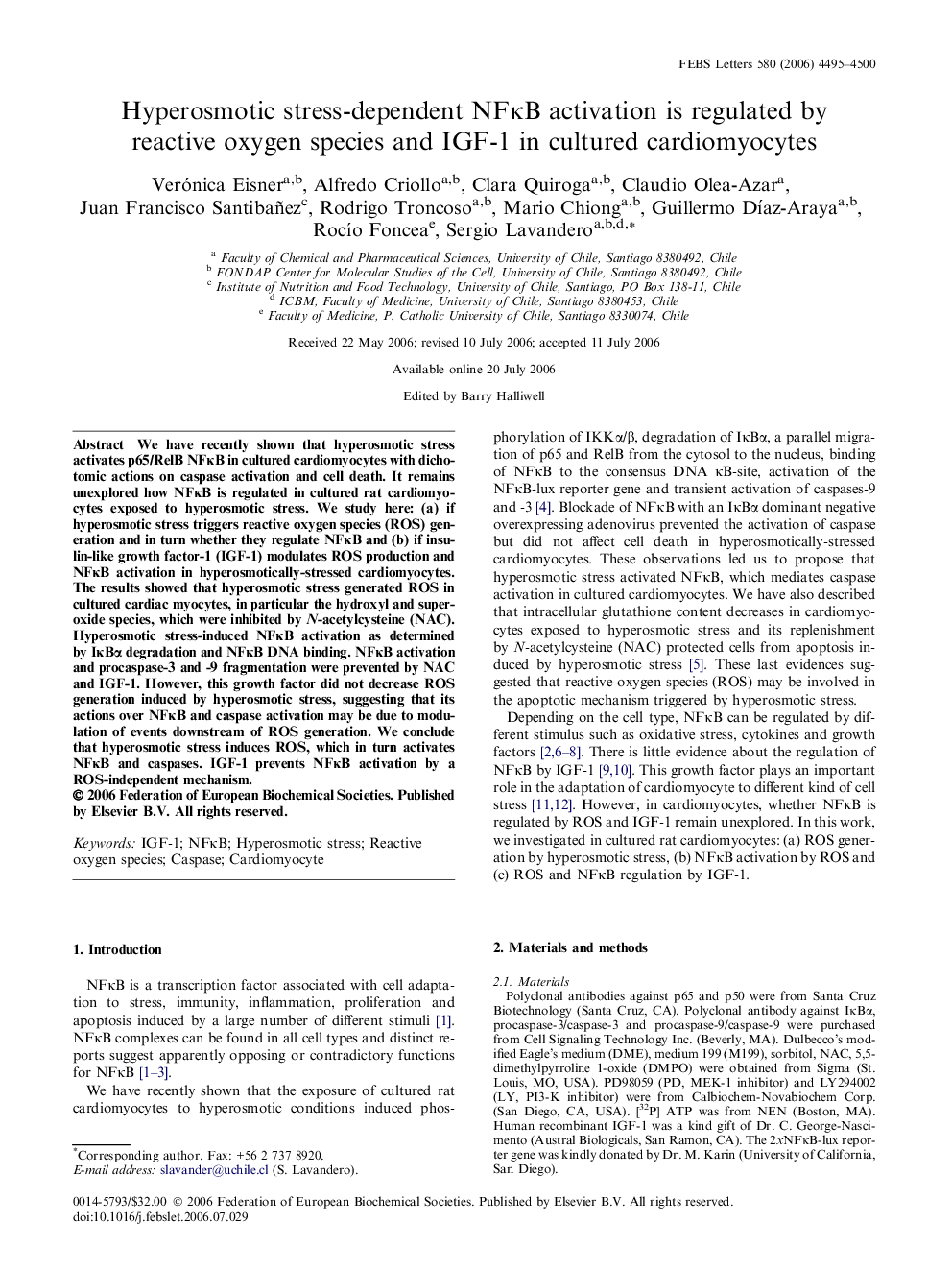| کد مقاله | کد نشریه | سال انتشار | مقاله انگلیسی | نسخه تمام متن |
|---|---|---|---|---|
| 2051849 | 1074211 | 2006 | 6 صفحه PDF | دانلود رایگان |

We have recently shown that hyperosmotic stress activates p65/RelB NFκB in cultured cardiomyocytes with dichotomic actions on caspase activation and cell death. It remains unexplored how NFκB is regulated in cultured rat cardiomyocytes exposed to hyperosmotic stress. We study here: (a) if hyperosmotic stress triggers reactive oxygen species (ROS) generation and in turn whether they regulate NFκB and (b) if insulin-like growth factor-1 (IGF-1) modulates ROS production and NFκB activation in hyperosmotically-stressed cardiomyocytes. The results showed that hyperosmotic stress generated ROS in cultured cardiac myocytes, in particular the hydroxyl and superoxide species, which were inhibited by N-acetylcysteine (NAC). Hyperosmotic stress-induced NFκB activation as determined by IκBα degradation and NFκB DNA binding. NFκB activation and procaspase-3 and -9 fragmentation were prevented by NAC and IGF-1. However, this growth factor did not decrease ROS generation induced by hyperosmotic stress, suggesting that its actions over NFκB and caspase activation may be due to modulation of events downstream of ROS generation. We conclude that hyperosmotic stress induces ROS, which in turn activates NFκB and caspases. IGF-1 prevents NFκB activation by a ROS-independent mechanism.
Journal: FEBS Letters - Volume 580, Issue 18, 7 August 2006, Pages 4495–4500